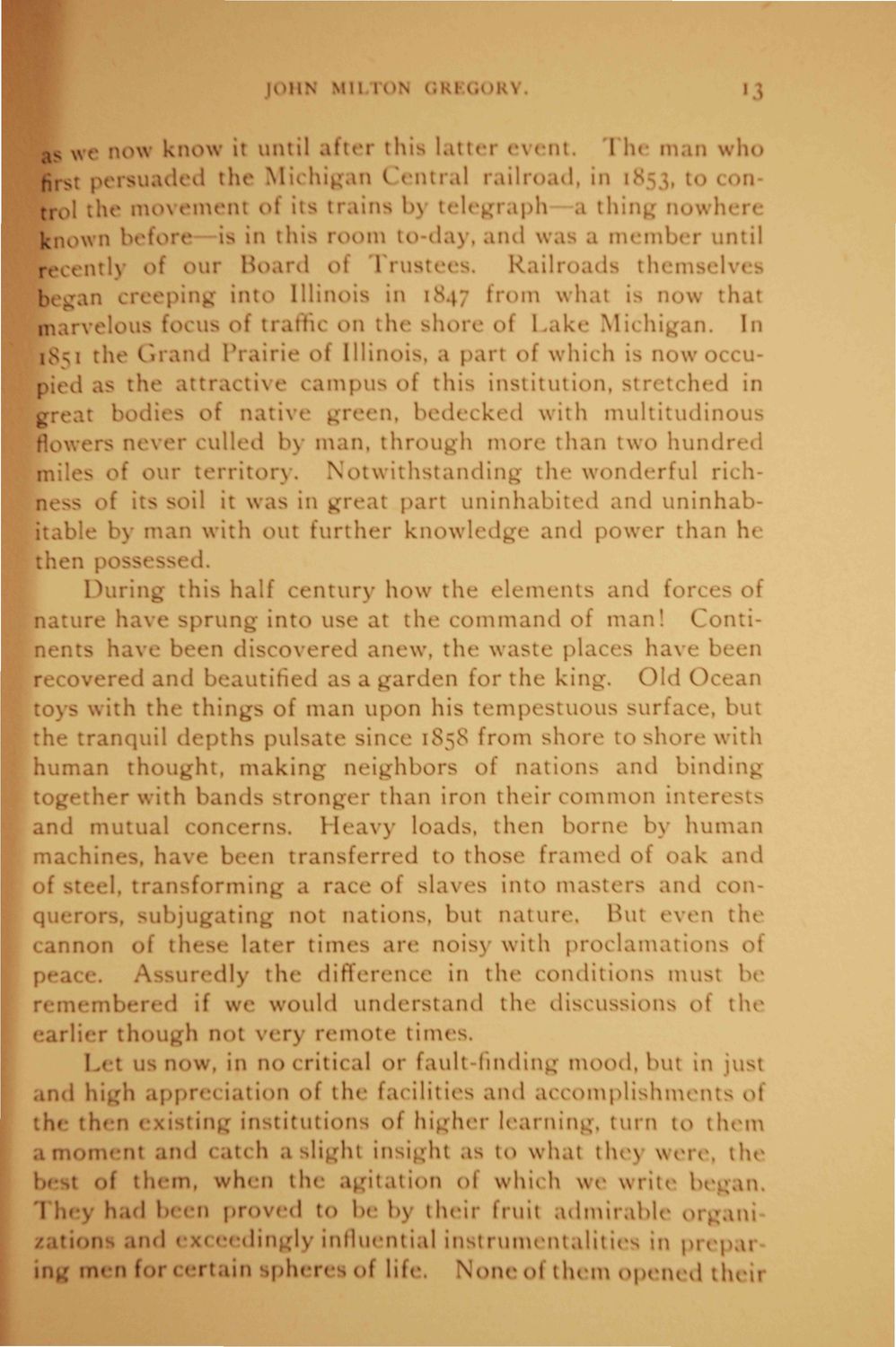Caption: Book - John Milton Gregory Memorial Convocation (1898)
This is a reduced-resolution page image for fast online browsing.

EXTRACTED TEXT FROM PAGE:
|OHN Mil 1 N C R N >R\ IJ n w kn it until after this latter event. I he man who a> v suadt I the Michigan ( entral railroad, in li to con st | t A the movement of its trains b) telegraph thing n here < known bet re—is in this i m to-day, and was a m mber until p ;\ v\ our Hoard i * 1 rU3te< Railroads them began reeping into Illinois in 1847 from whal is n that marvelous ft cus of traffic n the shore of I »ak< Mu higan. In iSsi the Grand Prairie oi Illinois, a part of which is nowoccu4 pied a- the attractive campus oi this institution, stretched in gre; b lies of native ^re < bedecked with multitudinous Rowers never culled b) man. through more than two hundred > f miles « our territory. Notwithstanding the wonderful richness of its soil it was in great part uninhabited and uninhabi le by man with out further know! \gc and power thi 1 h < then 1 $ess< d. D ing this had" century how the elements M\d force- of nature have sprung into use at the command of man! Continents have tn n discovered anew, the v iste places have 1 n recovered and 1 tautitied 1 garden for the king. Old Ocean tc - with th things oi man upon his tempestuous surface, but he tranquil depths pulsate sin< • 1S5S from shore tosh re with hum, 1 th tight, making neighbors oi nations and binding togeth th hands stronger than iron their common interests and mutual concerns. Heavy loads, then borne bj human achifl h a v e b e e n t r a n s f e r r e d to t h o s e t r a i n e d ot oak a n d > el, transforming a race of slaves into masters and conf queroi subju^ ttin not nations, but nature, But even th* nnon of these later times are nois\ with proclamations 1 p' . < . A sin lly t h e difference in t h e c o n d i t i o n s must hi < r m e m b e r e d if w would u n d e r s t a n d t h e disCUJ us 1 t h e e a r l i e r th h not V( rv r e m o t e times. Let us nov in no critical i fault dunlin mood, but in just ind high appr< ition of the facilities And accomplishments of the t h e n « listing i n s t i t u t i o n s of h i g h e r l e a r n i n . t u r n to t h e m L m o m e n t and catch a slight in lit as to what t h e \ w e n tin hr of t h e m , wh<n tin .1 ition of which we write b e e a n I1 had been p r o v e d to he l>\ their h i n t a d m r le orj mi zati md • din^ly influential i n s t r u m e n t a l i t i e s in p r e p a r ing men for certain ph< resof life. N n oi them open lth< 1 <
|